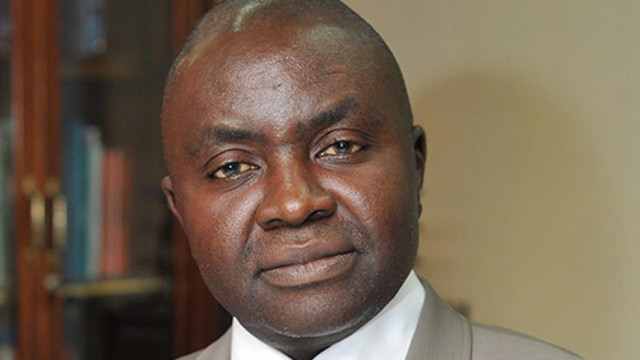The Centre for the Promotion of Private Enterprise (CPPE) has raised alarms regarding the government’s intention to prohibit the importation of solar panels as a strategy to foster domestic manufacturing.
Chief Executive Officer (CEO) of CPPE, Dr. Muda Yusuf, strongly advised against this policy, noting that Nigeria suffers from one of the lowest energy access rates globally, with a per capita electricity consumption of approximately 160kWh, well below the Sub-Saharan average of 350kWh.
The Federal Government recently revealed plans to stop importing solar panels in order to encourage local production and support the country's transition towards clean energy.
This announcement was made last week by the Minister of Science and Technology, Uche Nnaji, who indicated that this decision was in line with a presidential directive that prioritizes local content in science, engineering, and technology. He claimed that Nigeria possesses the resources and expertise to produce solar panels domestically.
Industry experts have opposed this plan, arguing that the vast energy deficit in the country and the scarcity of local firms capable of meeting demand would lead to shortages, leaving numerous homes and businesses without power.
Currently, only about 40 percent of Nigeria’s population is linked to the national grid, with power supply issues occurring about 90 percent of the time. Despite the mandatory shift to Band A for many enterprises and industrial zones nationwide, the Manufacturers Association of Nigeria (MAN) reported last year that companies spent roughly N500 billion on alternative energy sources.
Supporting MAN’s viewpoint, Minister for Power, Bayo Adelabu, mentioned last month that over 60 percent of the nation's manufacturing sector operates completely off-grid due to frequent grid failures.
A recent report from Sustainable Energy for All (SEforALL), examining the Energy Transition in Lagos State and, by extension, Nigeria, highlighted that Micro, Small, and Medium Enterprises (MSMEs) in Lagos spent N5.3 trillion on petrol and diesel to generate power for their operations last year. It pointed out that Nigerians depend extensively on private generators and estimated that between 14 to 20 gigawatts of power are generated off-grid.
Yusuf stated that adopting solar energy solutions is one of the most effective government initiatives for addressing this issue and has gained significant traction.
He argued, “A prohibition on the import of solar panels, in light of the evident inadequacy of domestic production capacity, would exacerbate the country’s energy crisis.”
According to the CPPE leader, this move is a complete reversal of the government policy aimed at promoting renewable energy adoption among households, small businesses, rural areas, government entities, and other organizations.
He noted, “This shift to solar solutions has gained remarkable momentum in the past two years, especially given the rising energy costs in the economy. Moreover, it would aggravate the energy access issue since it would make solar energy solutions unaffordable for the average Nigerian.”
While he supports the minister’s goal of local solar panel production, which is beneficial for self-sufficiency and foreign exchange conservation, he emphasized that this transition should be careful, thorough, and gradual.
He urged the government to support solar panel manufacturers with effective fiscal incentives, tariff reductions on intermediate products, and affordable long-term financing with single-digit interest rates. He also recommended reducing the import duty on batteries, inverters, and wind turbines to five percent, arguing that this would significantly enhance energy access, security, and productivity for the economy.
National President of the Association of Small Business Owners in Nigeria (ASBON), Dr. Femi Egbesola, expressed regret that businesses and manufacturers are again facing an unnecessary hurdle that would complicate production and increase costs.
He highlighted that ongoing failures and issues with the expensive national grid pushed many companies to seek alternative energy sources, and when diesel and petrol prices became exorbitant, they turned to cleaner energy options.
Egbesola further stated, “Local production is not yet viable enough to meet the country’s requirements. What the government proposes is not inherently flawed, but we are not yet equipped for local production. An immediate ban would only result in shortages and unmet demand, deepening the energy deficit.”
Meanwhile, solar panel dealer Segun Ayoola indicated that the announcement of the ban was met with worry and alarm among solar panel vendors. He noted that those with stock, particularly high-quality panels, began hoarding them in anticipation of price increases.
He disclosed that the price of panels surged overnight as sellers willing to part with their stock marked up their prices.




















